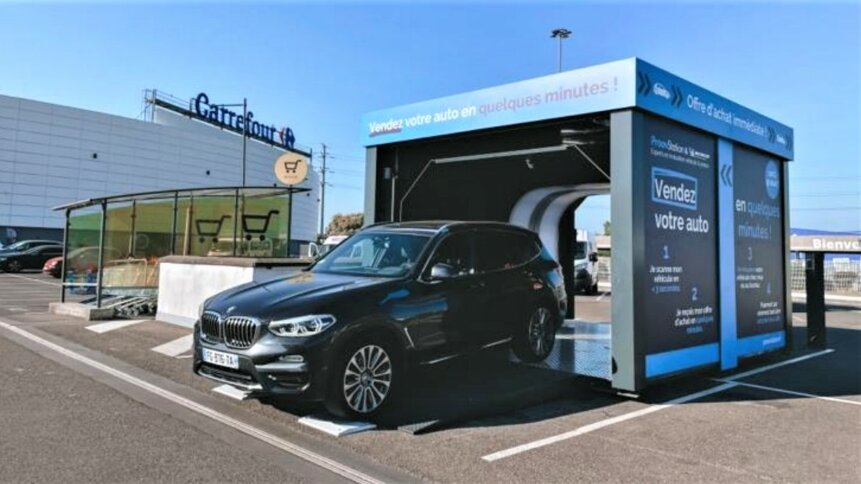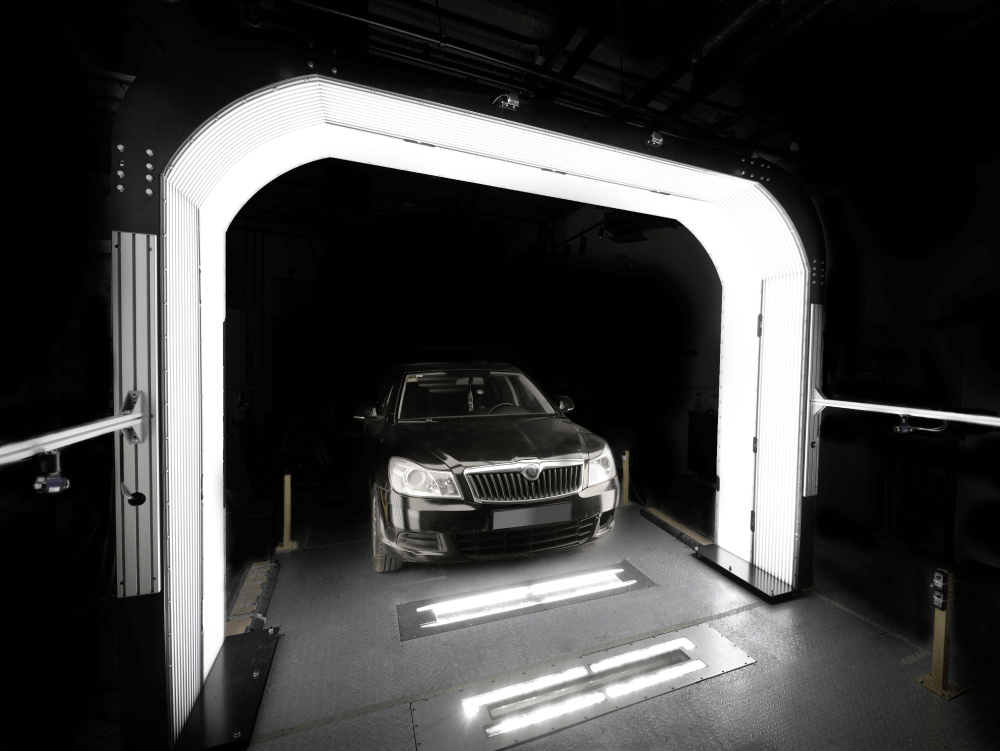AI vehicle inspection drives start up investment

|
Getting your Trinity Audio player ready...
|
Edge cases and tech layoffs might signal a difficult spell for driverless car developers, but that’s not to say that artificial intelligence isn’t booming elsewhere in the automotive industry. In January 2023, AI vehicle inspection firm, ProovStation announced that it had raised EURO 10.4 million to roll out a time-saving network of AI-assisted testing stations for the sale of used cars.
The AI vehicle inspection technology, which is housed in a drive-through design, enables car owners to receive a selling price for their vehicle in just a few minutes. Automating the vehicle valuation process means that used vehicle companies no longer need to waste time carrying out manual car inspections. Systems such as ProovStation’s automobile scanner eliminate human error and subjectivity from the vehicle valuation process, which can affect manual car inspections.
Scanning designs, which incorporate a 360-degree digital camera setup and specially designed lighting, can inspect hundreds of cars every day. Booths also feature magnetic tyre sensors – a collaboration with global vehicle tyre specialist MICHELIN. Tyre data, when interpreted by AI algorithms, can reveal geometrical and misalignment issues relating to the inspected vehicle. The monitoring technology was demonstrated recently at CES 2023 in Las Vegas, US. And the data generated by the magnetic tyre sensors provide further signals that contribute to the auto-generated car valuation.
ProovStation plans to use its latest round of funding to ramp up the deployment of its AI vehicle inspection technology. Sites for the AI-assisted testing stations include supermarket car parks. The company has a partnership with Carrefour – a European food retailer. And ProovStation has already made drive-through booths available in several Carrefour hypermarkets. Easy to access and readily available, the monitoring stations make it straightforward for car owners to receive AI-generated valuations on their vehicles. So far, ProovStation has deployed more than 130 drive-through automated vehicle inspection booths, in 13 countries.
How does AI vehicle inspection work?

Not a clipboard in sight: vehicle inspection has gone hi-tech thanks to digital imaging, specialist lighting and machine learning. Image credit: UVEYE.
AI vehicle inspection doesn’t have to involve the use of a drive-through facility. US firm Ravin has a smartphone app that allows non-professionals to perform AI inspection remotely using just their mobile. Images are uploaded to Ravin’s systems, which use a combination of computer vision and machine learning to analyse the data and deliver vehicle condition reports to clients. The tool can interpret other visual data too, including videos from standard CCTV cameras.
The machine learning enabled vehicle condition report offers a variety of insights, such as the location and severity of any damage, and an estimation of repair costs. As Ravin points out, data can give car buyers confidence in the vehicle they are interested in purchasing. And for insurance firms, the digital insights can help to settle claims more quickly, which reinforces a major benefit of automation.
UVEYE, which has offices in the US and Israel, is working with car dealerships to dramatically speed up the time taken to inspect vehicles and log details. The firm’s Helios system, which scans automobiles from below, can detect undercarriage wear and tear, as well as signs of leaks and corrosion. Additional cameras can perform 360-degree inspections, including tyre analysis. And users can receive a full condition report on their vehicle in just 3 to 4 minutes. Honda, GM, Toyota, Volvo, and Daimler, are just a selection of automotive clients listed on UVEYE’s website.
API, SDK, and other implementations allow customers to integrate AI inspection into their own systems. European tech firm Monk gives users this option. The Paris, France, based company describes a range of use cases such as car rental, leasing, and car sharing. AI vehicle inspection also helps bodyshops and auto repair firms to generate quotes and other reporting data quickly. In 2022, Monk was acquired by ACV Auctions to widen the parent company’s vehicle intelligence database. And the deal highlights how the use of AI to automate and speed up vehicle inspections has gone mainstream.
AI car damage detection
Today, garages, vehicle leasing companies, and other car users are all benefiting from fast, accurate and much more informative vehicle inspections. And the depth of the information provided is on the increase. Bdeo, which has offices in Spain, the UK, Germany, France and Mexico, and works with automotive insurers, is using AI inspection to identify the nature of the automotive damage, assess its repairability, and estimate both the cost and resolution time.
Having proven its capabilities in the automotive sector, it’ll be no surprise to learn that AI inspection technology is finding applications elsewhere too. For example, Bdeo is working not just with vehicle insurance firms, but also with property insurers to bring visual intelligence to building repair claims. “This advanced SaaS solution helps household insurers optimise their decisions and resolve claims quickly so policyholders can once again feel comfortable in their homes,” writes Bdeo on its website.
Car inspection, home inspection and much more – AI solutions are bringing digital transformation to multiple insurance verticals.









